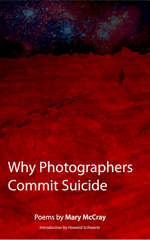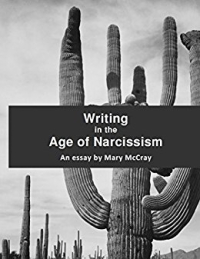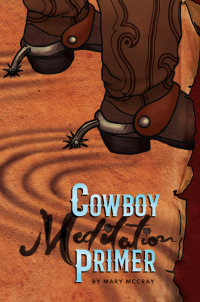Although my journey in forms is far from complete, so far I have made it through five books on the subject. If you are new to this sort of thing, I find it helps to take these books in small chunks, go away for a while and come back later rather than be overwhelmed by this brave old nerdy world.
 When I was an undergraduate at The University of Missouri-St. Louis, The Poet's Handbook by Judson Jerome (of Poet's Market) was our assigned reading for one of my workshops. We never got around to it and for years I let it linger on my bookshelf intimidated by its very cover. Years later, I gathered some stones and read the book. Was I wrong! This book was a gentle soul, easing me into the study of forms, starting from a look at free verses and the importance of the line.
When I was an undergraduate at The University of Missouri-St. Louis, The Poet's Handbook by Judson Jerome (of Poet's Market) was our assigned reading for one of my workshops. We never got around to it and for years I let it linger on my bookshelf intimidated by its very cover. Years later, I gathered some stones and read the book. Was I wrong! This book was a gentle soul, easing me into the study of forms, starting from a look at free verses and the importance of the line.
Myself, I have never been able to keep the terms of scansion memorized, no matter how many of these books I read. Although I do feel I have the musical concepts solidly internalized from years of reading, writing and listening to music closely. But like any good mechanic, you only become more engaged with the tinkering you do when you learn how the car works.
That said, it is comforting when Jerome says, "It compounds frustration, if not confusion, to realize that neither Chaucer nor most of the poets who followed him up to modern times ever actually analyzed verse this way. They just wrote it with rather amazing metrical consistency, and these complicated adaptations of Classical metrical [scansion] terms have been introduced by prosadist to explain the phenomena of the poet's practice."
That's right! Poets didn't bother with bracketing out their lines with marks and numbers. And scansion and metrics are not scientific laws. The whole "science" is rather inexact but better than nothing when it comes to studying a poem's engine. In fact, depending upon how you read a poem, there can be open controversy over whether a certain phrase is make up to be one antipast or an iamb next to a trochee. No one needs to get that crazy or snobbish about i.
The Poet's Handbook is an accessible textbook that covers most everything metrical including a healthy section on rhyme. However, there's not much on the popular forms like sonnets and sestinas.
 Years later I picked up this book at a library sale, Poetic Meter & Poetic Form by Paul Fussell. Both Jerome and Fussell make valiant cases for the use of forms, although Fussell is more dense and stuffy in his defense of why we need to care about music:
Years later I picked up this book at a library sale, Poetic Meter & Poetic Form by Paul Fussell. Both Jerome and Fussell make valiant cases for the use of forms, although Fussell is more dense and stuffy in his defense of why we need to care about music:
"…that regardless of the amount and quality of intellectual and emotional analysis that precedes poetic composition, in the moment of composition itself the poet is most conspicuously performing as a metrist."
Composition! Dear me. He can be a bit heavy handed as in, "Civilization is an impulse toward order."
Maybe true, Jack, but thousands of years of civilization hasn't made us all that civilized. But here is where my politics creep in. Unfortunately, a discussion on form invariably leads toward politics. Hippie liberals are free verse fanatics and conservatives are nostalgic for an era of Andy Griffith order that never was. Forms and free verse are like kids in a custody battle in the middle of it all.
I think young writers today are happily living with writing in a melding of both free verse and forms as they like, which is as it should be. Older folk still seem to have their axe to grind, (like the kind of "classical" poetry The New Criterion has been consistently whining for over the last decades). The establishment complains there is no variety or passion, specifically anger, in modern poetry, all while refusing to acknowledge the very passionate and angry poets already out there. Is it a coincidence this poetry is being written by minorities and young women? When you dig beyond the common complaints and ailments, the bedrock is always political when it comes to free verse versus form.
Anyway, if you'd like something more advanced, this book is interesting for that and Russell focuses his study on metrical variation (how to set up an expectation in meter and then thwart it for effect) and like Jerome's book, there is a section on free verse and how it fits in. He makes an excellent point with:
"a free verse poem without dynamics…perceptible interesting movement from one given to another or without significant variations from some norm established by the texture of the poem… will risk the same sort of dullness as the metered poem which never varies from regularity…The principle is that every technical gesture in a poem must justify itself in meaning."
Russell also covers the sonnet extensively but not much on other popular forms like sestinas and pantoums.
This is surely your stuffy, highbrow choice.
 I don't know where I picked up Rhyme's Reason by John Hollander but its best attribute is that it's skinny and concise, less than 100 pages. But the book covers verse systems, meters, free verse, "aberrant forms," and various popular forms such as odes, sestina, villanelles, etc. I like that it also covers rhetorical schemes such as the epic simile. It also has the best section on rhyme of the books here.
I don't know where I picked up Rhyme's Reason by John Hollander but its best attribute is that it's skinny and concise, less than 100 pages. But the book covers verse systems, meters, free verse, "aberrant forms," and various popular forms such as odes, sestina, villanelles, etc. I like that it also covers rhetorical schemes such as the epic simile. It also has the best section on rhyme of the books here.
This is good for a fast breeze through all the basic concepts. Not much evangelizing which is always appreciated.
 Lewis Turco's The New Book of Forms was the popular must-have book on forms when I was at Sarah Lawrence College in the mid-1990s. Turco's divides his study on metrics into sections: the typographical, the sonic, the sensory and the ideational level. I found this organization to be elusive and confusing and I had more question marks by his text than in any other book. However, the real meat of this book is the last 175 pages which include an index of every form imaginable with examples.
Lewis Turco's The New Book of Forms was the popular must-have book on forms when I was at Sarah Lawrence College in the mid-1990s. Turco's divides his study on metrics into sections: the typographical, the sonic, the sensory and the ideational level. I found this organization to be elusive and confusing and I had more question marks by his text than in any other book. However, the real meat of this book is the last 175 pages which include an index of every form imaginable with examples.
I've used this book entirely as an invaluable encyclopedia of forms. But it's very lacking on the background behind those forms so it wont do on its own.
 This is the book I just finished over the weekend, actor Stephen Fry's The Ode Less Traveled, a book that was given to me by a friend. This one is an oddball in the set. Fry is both accessible and off-putting. He's upper crust British, a Shakespearean actor (which gives some perspective on blank verse), and he goes blue inexplicably in parts beyond the naughty limericks (which are great, btw). He's also a (very knowledgeable) layman attempting to teach to newbies. Experienced poets may have no patience for this. Because I like to re-visit subjects as a newbie occasionally (as Zen Buddhists instruct me to do), I found this refreshing. His book even includes lessons and tables. He's also good at bringing in pop culture examples (a gesure too lowbrow for the other books). I also appreciated he definition of what poets do, that we are concerned with precision, "exactly about the exact, fundamentally found in the fundamental, concretely concrete, radically rooted in the thisness and whatness of everything." Later he says, "Much of poetry is about consonance in the sense of correspondence: the likeness or congruity of one apparently disparate thng to another. Poetry is concerned with the connections between things."
This is the book I just finished over the weekend, actor Stephen Fry's The Ode Less Traveled, a book that was given to me by a friend. This one is an oddball in the set. Fry is both accessible and off-putting. He's upper crust British, a Shakespearean actor (which gives some perspective on blank verse), and he goes blue inexplicably in parts beyond the naughty limericks (which are great, btw). He's also a (very knowledgeable) layman attempting to teach to newbies. Experienced poets may have no patience for this. Because I like to re-visit subjects as a newbie occasionally (as Zen Buddhists instruct me to do), I found this refreshing. His book even includes lessons and tables. He's also good at bringing in pop culture examples (a gesure too lowbrow for the other books). I also appreciated he definition of what poets do, that we are concerned with precision, "exactly about the exact, fundamentally found in the fundamental, concretely concrete, radically rooted in the thisness and whatness of everything." Later he says, "Much of poetry is about consonance in the sense of correspondence: the likeness or congruity of one apparently disparate thng to another. Poetry is concerned with the connections between things."
But his attempts at humor often fell flat with me.Very flat. And of course he falls into the political pit, calling most contemporary poetry, "feeble-minded political correctness…it is if we have been encouraged to believe that form is a kind of fascism." WTF? He defines "free-form meanderings" as "prose therapy" and navel gazing. Hey, a form doesn't prevent one from navel gazing. Then he goes on to say he is "far from contemptuous of Modernism and free verse" and he worries you'll think he's an "old dinosaur." Which I do BUT as my grandfather always said, you can learn something from anybody and I did enjoy this book overall.
A good light choice for newbies and the eternal newbie.
 Unfortunately I have been felled temporarily by a flare-up of my carpel tunnel so I can't type much here today.
Unfortunately I have been felled temporarily by a flare-up of my carpel tunnel so I can't type much here today.
















